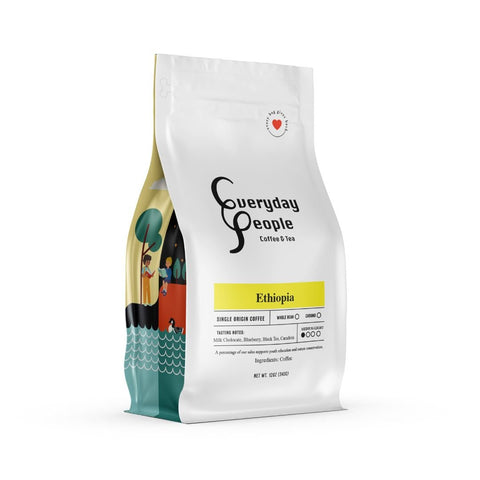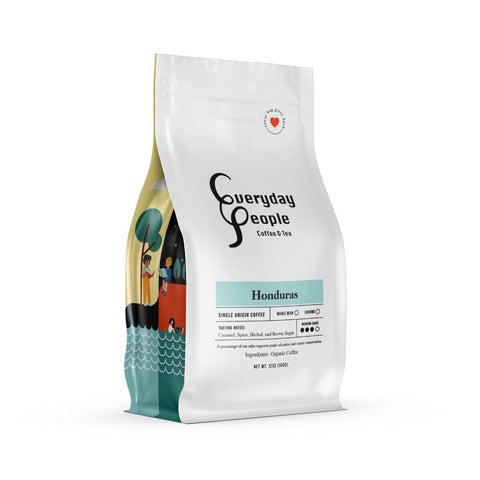Oromia Coffee Farmers Cooperative Union
OCFCU - Ethiopia's Premier Coffee Cooperative

Farm Overview
The Oromia Coffee Farmers Cooperative Union (OCFCU) stands as one of Ethiopia's most remarkable success stories in cooperative coffee farming. Established in 1999 in Ethiopia's Oromia Regional State, this democratic, member-owned organization has grown to become a powerhouse in the Ethiopian coffee industry, representing over 557,000 farming households across 407 cooperatives.
Ethiopia is the birthplace of coffee, where the coffee plant was first discovered and where coffee culture runs deeper than anywhere else in the world. For the Oromo people, coffee has been part of their culture since the 5th century, originally used as food before evolving into the beloved beverage we know today. Coffee is more than just an income-producing crop in Ethiopia—it's woven into the fabric of daily life and cultural traditions.
Coffee Profile & Specifications
OCFCU produces exceptional naturally processed coffee that embodies Ethiopia's ancient coffee heritage. Growing in the fertile Sidama region at high altitudes, these heirloom varieties showcase the unique terroir that makes Ethiopian coffee legendary worldwide.
Delicate Body
Floral, Berry
Sun Dried
Oromia State
Sidamo
Organic
Growing Conditions
The Sidama region in Ethiopia's Oromia zone provides ideal conditions for growing exceptional coffee. At altitudes ranging from 2,000 to 2,200 meters above sea level, the highland climate creates the perfect environment for slow cherry development and complex flavor formation.
The rich volcanic soils, combined with distinct wet and dry seasons, allow the indigenous heirloom varieties to thrive. These ancient coffee varietals, evolved over centuries in their native environment, produce beans with unparalleled complexity and distinctive Ethiopian characteristics.
Heirloom Varieties
Ethiopian heirloom varieties are the original coffee plants, grown in their birthplace for over a thousand years. These indigenous varietals include:
- Sidamo Heirloom: Complex floral and fruit characteristics unique to the region
- Native Typica: Ancient variety with exceptional cup quality and terroir expression
- Local Landraces: Wild varieties adapted specifically to local microclimates

Traditional Natural Processing
OCFCU employs traditional Ethiopian processing methods that have been perfected over centuries. The natural (dry) processing method allows the coffee cherries to dry completely with the fruit intact, imparting distinctive fruity and wine-like characteristics to the beans.
Cherry Harvesting
Ripe coffee cherries are selectively hand-picked by experienced farmers during the optimal harvest period. Only the ripest, red cherries are selected to ensure maximum sugar content and flavor development.
Natural Sun Drying
Whole cherries are laid out on traditional drying beds called "African beds" or concrete patios. The cherries are turned regularly and protected from rain during the 2-4 week drying process.
Sorting & Selection
During the drying process, farmers carefully remove any damaged or under-ripe cherries. This meticulous sorting ensures only the highest quality beans make it to the final product.
Hulling & Grading
Once properly dried to 11-12% moisture content, the dried cherries are hulled to remove the fruit and parchment. Beans are then sorted by size and quality grade.
Quality Control
Final quality control includes cupping evaluation, moisture testing, and visual inspection before beans are prepared for export in traditional jute bags.
Cooperative Impact & Growth
OCFCU's remarkable growth story demonstrates the power of cooperative farming and fair trade principles. What began as a small organization of 34 cooperatives has grown into Ethiopia's largest coffee cooperative union, directly impacting over half a million families.
70% Profit Return
OCFCU returns an impressive 70% of net profits directly to member cooperatives and their farmers, ensuring fair compensation and community development.
Capital Growth
Through fair trade practices, the cooperative has grown its capital from $90,000 to over $20,763,000, demonstrating sustainable business success.
Community Development
Improved farmer incomes have led to better access to healthcare, education, and social services for hundreds of thousands of families.
Sustainable Practices
Organic farming methods preserve Ethiopia's coffee forests and protect the environment for future generations of coffee farmers.
Coffee as Culture
In Ethiopian culture, coffee is far more than a commodity—it's central to social life and community bonding. The traditional Ethiopian coffee ceremony, performed multiple times daily, brings families and communities together in a ritual that can last hours.
This deep cultural connection to coffee ensures that OCFCU farmers approach their craft with reverence and dedication that spans generations. For over 20 years, OCFCU has worked to preserve these traditions while improving livelihoods through fair trade principles.
Economic Impact
Coffee is Ethiopia's main export commodity, contributing to the livelihoods of more than 15 million farmers and sector workers. OCFCU represents a significant portion of this community, with 65% of the country's coffee grown in the Oromia region.

From 34 to 407 Cooperatives
OCFCU's growth from 34 member cooperatives to 407 cooperatives represents one of the most successful cooperative development stories in African agriculture. This expansion has been driven by the organization's member-focused approach, democratic governance, and commitment to returning profits to farmers.
The cooperative's success has created a positive cycle: better prices for farmers lead to improved coffee quality, which commands higher market prices, generating more resources for community development and further growth. This model has made OCFCU a beacon for cooperative development across Ethiopia and East Africa.

The Birthplace of Coffee
Ethiopia holds the unique distinction of being the birthplace of coffee. According to legend, coffee was discovered by a goat herder named Kaldi in the Ethiopian highlands. Whether legend or fact, archaeological and genetic evidence confirms that coffee originated in the forests of southwestern Ethiopia.
This heritage gives Ethiopian coffee an authenticity and depth that cannot be replicated elsewhere. The wild coffee forests of Ethiopia contain thousands of genetic variations, making Ethiopian coffee not just historically significant but also genetically diverse and flavor-complex in ways that cultivated varieties in other countries cannot match.
Oromia Regional State
The Oromia Regional State, where OCFCU operates, is Ethiopia's largest region and home to the Oromo people—Ethiopia's largest ethnic group. This region produces approximately 65% of Ethiopia's coffee, making it the heart of the country's coffee industry.
The Oromia region's diverse geography, from highland plateaus to mountain ranges, creates numerous microclimates perfect for growing distinct coffee profiles. Each area within the region produces coffee with unique characteristics, contributing to the complexity and variety of OCFCU's offerings.
Experience Ethiopian Coffee Heritage
Taste the origin of coffee itself. Every cup supports 557,000 farming families and preserves centuries of coffee tradition in the birthplace of coffee.
Shop Ethiopian Coffee Explore Our Farms



